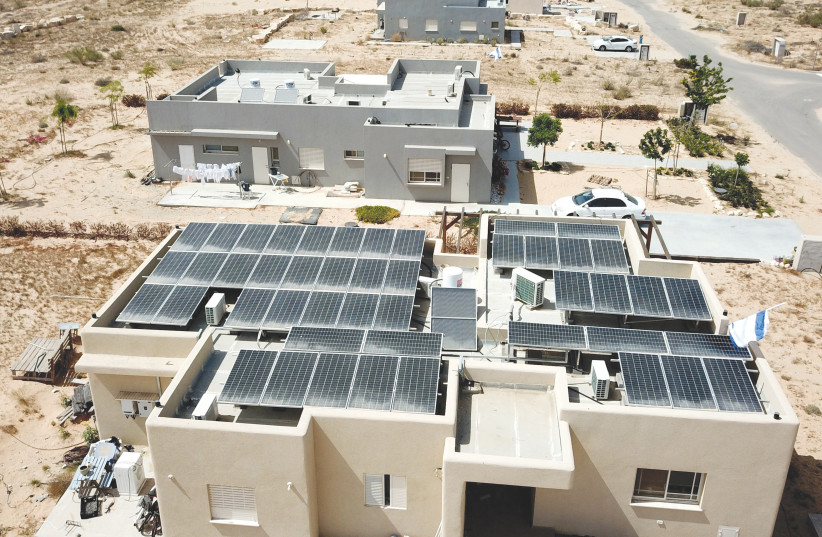The book is not without bright spots, however, as it suggests that with its unique characteristics, the Middle East could help with the solution to these issues.
By JERUSALEM POST STAFF JANUARY 21, 2021 15:00

[editor’s notes: the headline and tone of the article is misleading. The focus of the book is the potential of the ME to transition to renewable, e.g. solar, energy]
A new study finds a grim future for the Middle East resulting from climate change.
In the book, The Power of Deserts: Climate Change, the Middle East and the Promise of a Post-Oil Era, Dan Rabinowitz, a professor of Sociology and Anthropology at Tel Aviv University, explains that the Middle East could soon experience increased water shortages, decreased agricultural productivity, large scale displacement and conflict as a result of a deteriorating climate.
“The tragic cases of Sudan and Syria demonstrated what could happen when shrinking agricultural outputs force millions to leave rural hinterlands and seek refuge in cities which are ill-equipped and often unwilling to absorb them,” said Rabinowitz.
The book also details how the technologically advanced nations of the area, which are responsible for higher per-capita emissions of greenhouse gases, will be able to more easily adapt to the consequences of these actions, while their poorer neighbors will likely suffer the most.
The book is not without bright spots, however, as it suggests that with its unique characteristics, the Middle East could help with the solution to these issues.Rabinowitz says that over the past 70 years, the Persian Gulf used its oil to fuel its economy. But now that renewable energy is becoming an alternative, combined with the above-mentioned result of continuing with oil, some reconsiderations should be made. Rabinowitz argues this should be a transition to solar energy, utilizing the abundant sunny days the region receives and land that can be used for solar energy or other domestic electricity production, should they choose to invest in it.
“Rather than resisting the energy transition, which was underway even before COVID-19 and was accelerated since, the Gulf States could switch to the ‘right’ side of history, join the struggle to curb climate change, and gain respect in the eyes of many who once looked at them with suspicion and contempt,” said Rabinowitz. “Significantly, this transformation on their part does not hinge on an ideological rebirth and the adoption of a ‘green’ outlook. It could transpire as a rare historical junction where self-preservation on the part of some works to the benefit of many others.”
